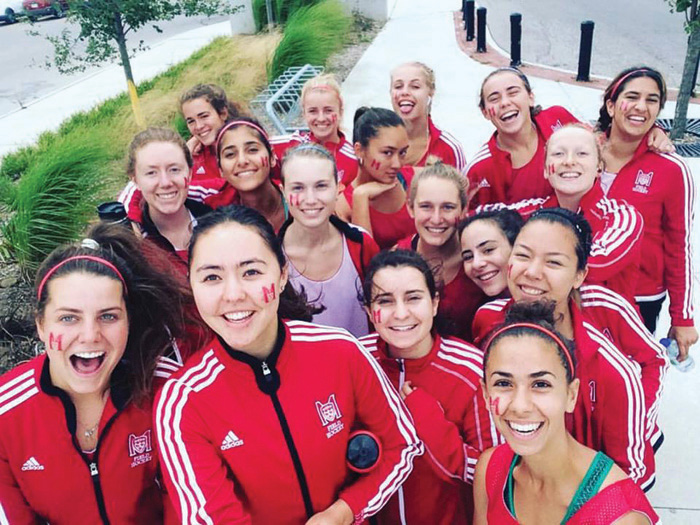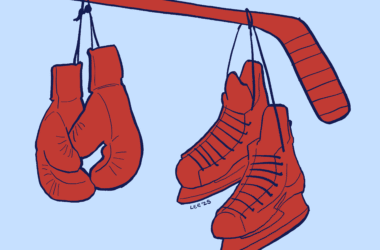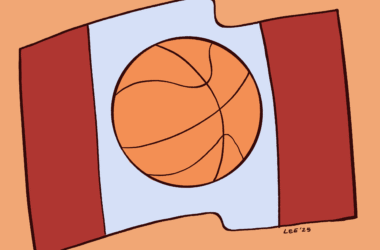Being a collegiate athlete at McGill is an enormous commitment. Practices during the week and travelling for games on the weekend takes up a large block of student athletes’ schedules. However, the Martlet Varsity Field Hockey team experiences this reality at an extreme.
According to team captain Julia Rogers, each athlete paid $975 this season to play field hockey for McGill—the highest of any sports team at the university. This was a $325 increase in fees on previous years.
“‘[The] price increase [to our team fee] happened because of a change in the league structure,” Rogers said. “The league has been structured such that the top four teams go to the OUA championship. This year, however, every team gets seeded. This means that we are travelling an extra four days that we weren’t last year.”
The field hockey regular season packs in 12 games from Sept. 24 to Oct. 23. The congested schedule also contained a two-day stretch when the team played four games—a true feat.
“When you play that many games in a weekend you have to be very mentally tough and to compartmentalize each individual game,” said Rogers. “If you or the team has one bad game, you cannot let that affect the other three games you need to play.”
The Martlets also have to contend with only three substitutes on their team, forcing the upperclassmen to play entire games without rest or rehab.
“[You have to] be prepared,” Rogers said. “You’re going to be sore and need to push through it.”
The team has so few substitutes available because they face geographical constraints in recruiting new talent. They are the only field hockey team in the entire province of Quebec, and have little to no opportunities to bring in recruits and see them play.
“Field hockey is not that popular in Quebec,” third year Assistant Captain Catherine Friedman said. “Players who are genuinely interested in [playing at] a university level typically aren’t drawn to McGill.”
Most potential recruits are located outside of Quebec. While other varsity teams have the resources to recruit players from across the country, the cost of scouting trips combined with the time commitment for the team’s two unpaid coaches make the task next to impossible for the field hockey team—the only way would be to further increase the cost of the team’s fee.
This year, the team lacks a suitable local practice field. The recent resurfacing of Forbes Field was supposed to include lines and marking for field hockey use. Unfortunately the lines that were made are largely wrong. For example, the 25 yard-lines are painted in the incorrect location.
Despite the error, McGill Athletics haven’t taken any steps to fix the markings or provide the field hockey team with an alternate field for practices and exhibitions.
“This is the first time that [news of the incorrectly marked field] has actually come to my attention,” Associate Director of Athletics and Recreation Philip Quintal said. “I’ll have to look into this.”
The fact that McGill Athletics was unaware of this trouble only compounds the fact that the field hockey team faces unique difficulties. And yet, the Martlet Field Hockey players soldier on, embracing a schedule and adversity beyond the average McGill athlete.







